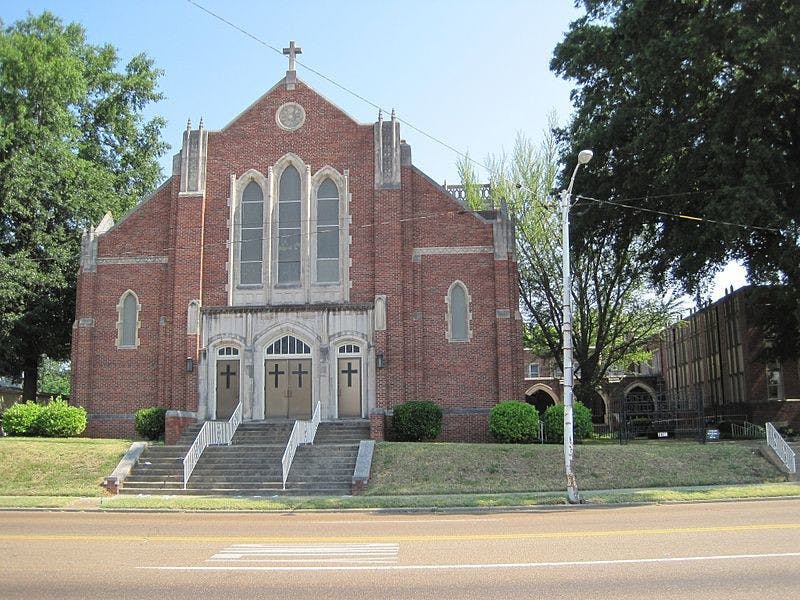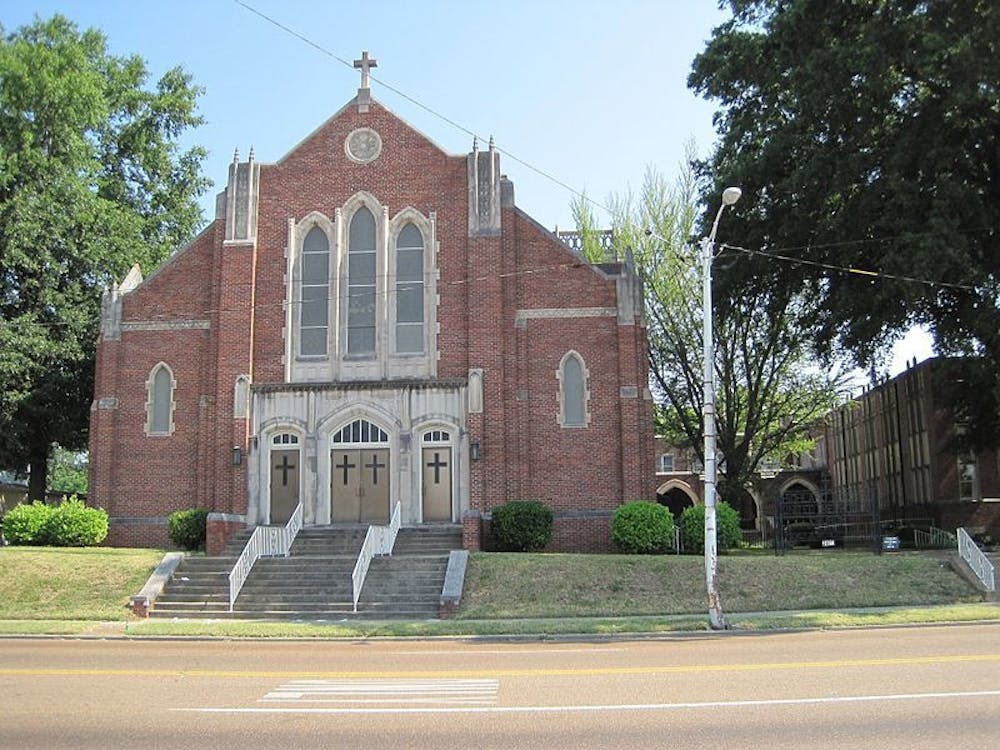
Highland Heights United Methodist Church is among about 90 churches in the metro district of the United Methodist church.
The United Methodist Church passed a plan that prohibits same-sex marriage and LGBTQ clergy members.
It was passed Feb. 25 during a General Conference, which is the name of the denominational meeting that is responsible for setting overall policies for the United Methodist Church and usually meets every four years. This plan makes it so all bishops, pastors and annual conferences are required to abide by the discipline standards on same-sex marriage and ordination of LGBTQ clergy.Â
Christopher Haynes, an ordained elder and the lead pastor of the First United Methodist Church, said the decision was a focal point for the church, being that there were previous conversations about the church’s stance on same-sex marriage and LGBTQ church members.
“It came after a period of discernment by a ‘Way Forward Commission,’ which had been charged with developing a plan that would allow progressives and traditionalists to remain together in the same denomination without splitting into separate groups,†Haynes said.
Haynes said there were three plans for consideration, but ultimately the most conservative one was decided on.
The conversation of prohibiting or including LGBTQ clergy members in the UMC has been present throughout the years.
In 1972, the conversation about including the gender and sexual minorities in the church was first introduced. That year, the General Conference adopted a statement that condemned gay people’s lifestyle.
The statement said, “Homosexuals no less than heterosexuals are persons of sacred worth who need the ministry and guidance of the church in their struggles for human fulfillment. Further, we insist that all persons are entitled to have their human and civil rights ensured, though we do not condone the practice of homosexuality and consider this practice incompatible with Christian teaching.â€
In 1984, there was a ban on ordaining “self-avowed practicing homosexuals†as ministers and a 1996 ban on coordinating same-sex weddings within the church.
Haynes said many traditionalists still support these restrictions, but there has been some opposition.
“Some of our progressives have asked for the removal of the Book of Discipline, which contains our denominational policies,†Haynes said. “As time has progressed, these divergent viewpoints have seemed to grow farther apart with less middle ground for conversation or compromise,†Haynes said.
Haynes also shared his opinions on the church’s decision to implement the ‘Traditional Plan.’
“I do seek to understand and honor the traditional views that some have about sexuality while I also have a heart that yearns for our churches to be open to all people, without exception, including those in the LGBTQ community,†Haynes said. “That remains a real struggle for us, and I’m concerned for all people who have been hurt by this decision.â€
The church’s policy has affected some of its clergy members.
Evelyn Odle, a devoted United Methodist Church member, shared how she felt about the decision.
“I am upset, disappointed and (still in) shock about the result of the traditional plan legislation,†Odle said. “I believe that we are not yet where we should be.â€
Odle, a freshman at the University of Tennessee at Chattanooga, said the plan does not align with the church’s mission and purpose.
“I found the traditional plan to be offensive and unfit for our church’s fundamentals,†Odle said. “The Methodist Church heals hurting people, and I feel the traditional plan doesn’t hold the healing principles people need.â€
Jonathan Gall, a UMC member and an LGBTQ community advocate, said it has been difficult to witness the decision’s effect on his peers.
“It has been hard for me to watch so many people I love experience the pain and sadness of being formally rejected by a Church that felt like home to them,†Gall said. “But in the end, our church home is right here with us. Every single one of us fights because we have had the experience of being told we’re unlovable and encountering in God a love bigger than could be imagined and a grace beyond measure.â€






